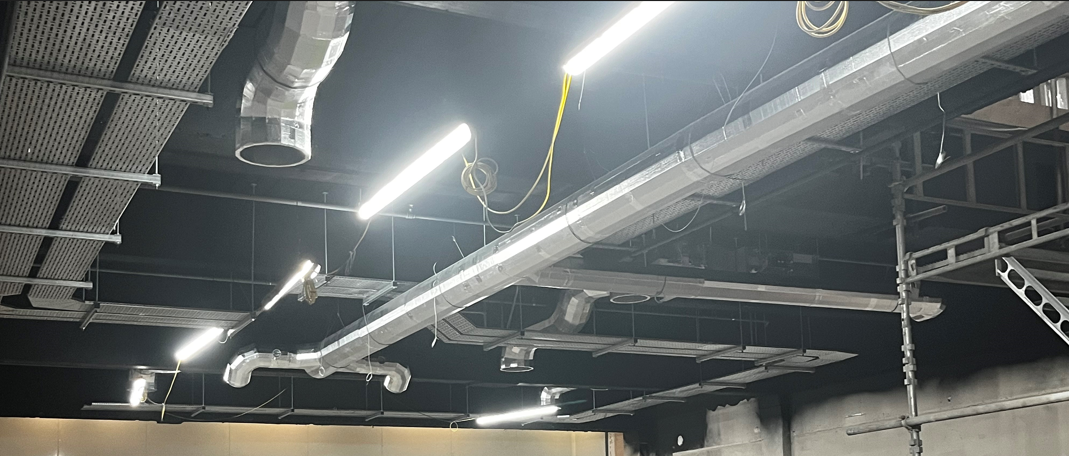EcoDuct Market Update – 15th January 2024
Building Standards Review Underscores Effective Ventilation Needs
Summary:
• Proposals for a Future Homes and Non-Domestic Buildings Standard in England will look to prioritise and enforce the effective design and operation of ventilation systems.
•The review of possible changes includes many proposed requirements, the fulfilment thereof that will be enhanced by the use of EcoDuct, including:
o Improved thermal bridging,
o Ensuring airtightness,
o Effective design of ventilation systems,
o Mechanical ventilation systems being properly installed and commissioned, thereby ensuring their operational effectiveness.
• Effective Design and Operation of Ventilation Systems should be prioritised to:
o Optimise indoor air quality and overall building efficiency, and
o Contribute to improved thermal performance and occupant comfort.
• It is critical that all ventilation products should be fit for purpose, both in terms of current standards and regulations, but also aligned with likely developments and additional and more stringent requirements in future.
• EcoDuct, fabricated from KoolDuct phenolic insulation, is fully compliant and aligned with all relevant standards and regulations and, we believe, is a reliable and sustainable solution for both the present and future.
Proposals for a Future Homes and Non-Domestic Buildings Standard in England will look to prioritise and enforce the effective design and operation of ventilation systems.
Proposals for implementing stricter design standards for new homes and non-domestic buildings in England have highlighted the importance of effective ventilation and heat pump design. A consultation launched recently by the government is looking to define both a Future Homes Standard and Future Buildings Standard for England that aims to ensure buildings are designed to eliminate carbon emissions for functions such as heating and cooling without further significant changes in fabric or structure.
The proposals favour maintaining many of the existing fabric standards for new builds introduced during the 2021 uplift of the Building Regulations. These standards are focused on designing buildings to be as airtight as possible to retain heat.
The consultation document stated: “Firstly, the level set in 2021 will ensure that (with adequate ventilation) new homes do not generally experience damp and mould or excessive temperatures; an increase in fabric beyond this level does not give significant additional benefit. Secondly, it allows efficient low carbon heating, including modern heat pumps, to function well.”
“The move to low carbon heating is central to the government’s commitments to decarbonise housing, and so fabric must be set at a level that allows these systems to work efficiently.”
The proposals in the Futures Homes Standard and Future Buildings Standard opt against requiring significant increases in fabric efficiency over the 2021 standards. They will instead favour encouraging the widescale use of low carbon heating systems as a priority for decarbonising homes. The proposals have also ruled out a role for any form of gas heating, including hydrogen or hybrid systems in new buildings across England from 2025 onwards.
A review of possible changes to fabric requirements that has informed the consultation looked at the potential for mandating fabric improvements such as wall changes, new floors, triple glazing and improved thermal bridging. The government said that it favoured focusing on ensuring airtightness in buildings to ensure efficiency. This would in turn require effective design of ventilation and heating. It added: “We believe that heat pumps and mechanical ventilation systems being installed and commissioned well is important to the success of the Future Homes Standard.”
In order to uphold the standards, the consultation has backed one of two different mechanisms to ensure the systems have been installed correctly.
One option will look at self-certification by individuals that are members of an approved competent person scheme.
In other cases, the consultation said it favoured mandating that any HVAC work in new buildings is checked by a building control body as part of a new regulatory regime being introduced in England.
The regulations are to be overseen by a new Building Safety Regulator (BSR) that is in the process of being implemented in England.
The consultation document stated: “We have heard some evidence that building control bodies do not always have the resources and expertise to carry out appropriate post-installation checks on fixed building services. We are keen to ensure that fixed building services installed and commissioned by people who are not part of a competent person scheme are receiving the right checks.”
“Separate from this consultation, the BSR has commenced registration of Registered Building Inspectors (RBIs) and Registered Building Control Approvers (RBCAs), currently known as Approved Inspectors. BSR will be regulating the building control profession and improving competence through oversight, support and encouragement as well as mandatory codes and standards to apply from April 2024.”
Reprinted with kind permission of H&V News.
About EcoDuct – the Future of Ductwork
EcoDuct specialises in transformative ductwork technology, providing unique, high performance, fully compliant non-metallic, pre-insulated ductwork systems. EcoDuct offers circular, flat oval, square and rectangular options in all dimensions and all colours. It is suitable for all applications where insulated ductwork is required – commercial, industrial, residential, modular, new build and retrofit.
A comprehensive range of cutting-edge and fully compliant innovations enhance energy efficiency, significantly reduce environmental impact, improves material safety and enhances indoor air quality. EcoDuct's commitment to sustainability and net zero aligns with the global drive toward environmentally friendly practices, helping to shape a more sustainable and greener future for the construction industry.
EcoDuct reduces carbon and energy, saves space, cost and time and delivers clean uncontaminated air with no ‘green premium’. Precision engineered EcoDuct is light and robust - the only pre-insulated ductwork manufactured in the UK that is rated Class D for air leakage at 2,500 Pa, a testimony to the highest quality and performance attributes.
EcoDuct Transformative Technology raises the bar for future HVAC ductwork design and specification, and sets the standard for future-proof buildings on the road to net zero.

